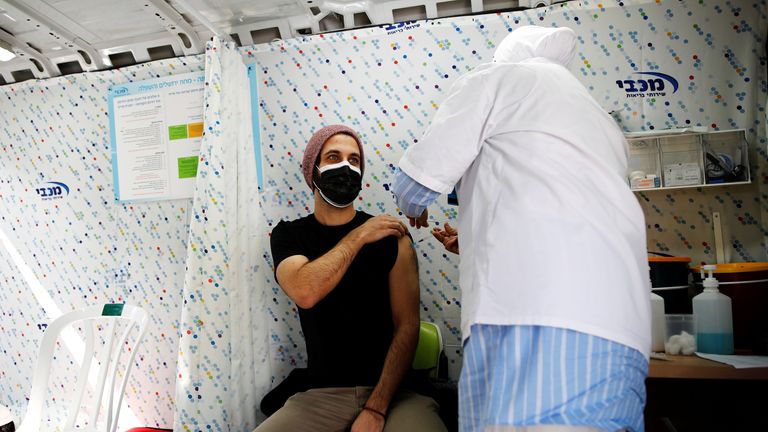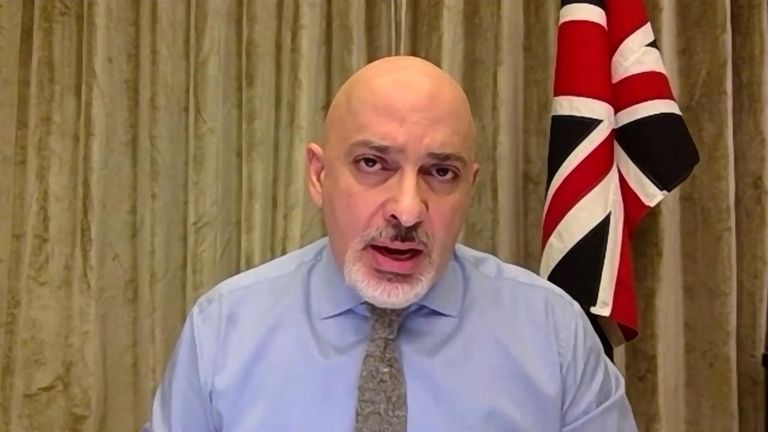The first big peer-reviewed real-world study of the Pfizer vaccine has confirmed it is very effective at preventing serious illness or death – even after one dose.
In a potential landmark moment, results from a mass vaccination campaign in Israel showed the jab is roughly as effective in the real world as it was in smaller-scale clinical trials.
After one shot, the vaccine was 62% effective at preventing severe disease – rising to 92% after two doses – according to data published in the New England Journal of Medicine.
Its estimated effectiveness for preventing death was 72% two to three weeks after the first shot, which could rise as immunity builds over time.
The Pfizer/BioNTech vaccine appeared just as effective in those over 70 as in younger people.
“This is immensely reassuring… better than I would have guessed,” said the Mayo Clinic’s Dr Gregory Poland, who was not involved in the study.
More than half a million people were involved in the peer-reviewed study as Israel has stormed ahead with one of the world’s fastest vaccine rollouts, providing a rich source of data on how well they work outside of trials.
Participants who were given shots in December or January were compared with an equal number of people with similar demographic profiles who did not receive the vaccine.
The results will be reassuring for UK officials, who had taken a gamble on delaying the second dose of the vaccine by 12 weeks to allow for more people to be given their first shot.
And yet more good news was unveiled in the study, as two doses of the Pfizer vaccine were shown to cut symptomatic COVID-19 cases by 94% across all age groups.
A single shot was 57% effective in protecting against symptomatic infections after two weeks.
Clinical trials last year found two doses were 95% effective at preventing symptomatic cases, only slightly higher than the real-world data.
:: Subscribe to the Daily podcast on Apple Podcasts, Google Podcasts, Spotify, Spreaker
“We were surprised because we expected that in the real-world setting, where the cold chain is not maintained perfectly and the population is older and sicker, that you will not get as good results as you got in the controlled clinical trials,” said senior study author Ran Balicer.
“But we did and the vaccine worked as well in the real world. We have shown the vaccine to be as effective in very different sub-groups, in the young and in the old in those with no co-morbidities and in those with few co-morbidities,” he added.
The study also suggests the vaccine is effective against the variant first discovered in Kent.
Researchers could not give a specific level of efficacy but the fact the variant was the dominant version of the virus in Israel at the time of the study is encouraging in this sense.
It was not clear from the study how the Pfizer shot will fare against the variant first discovered in South Africa.


